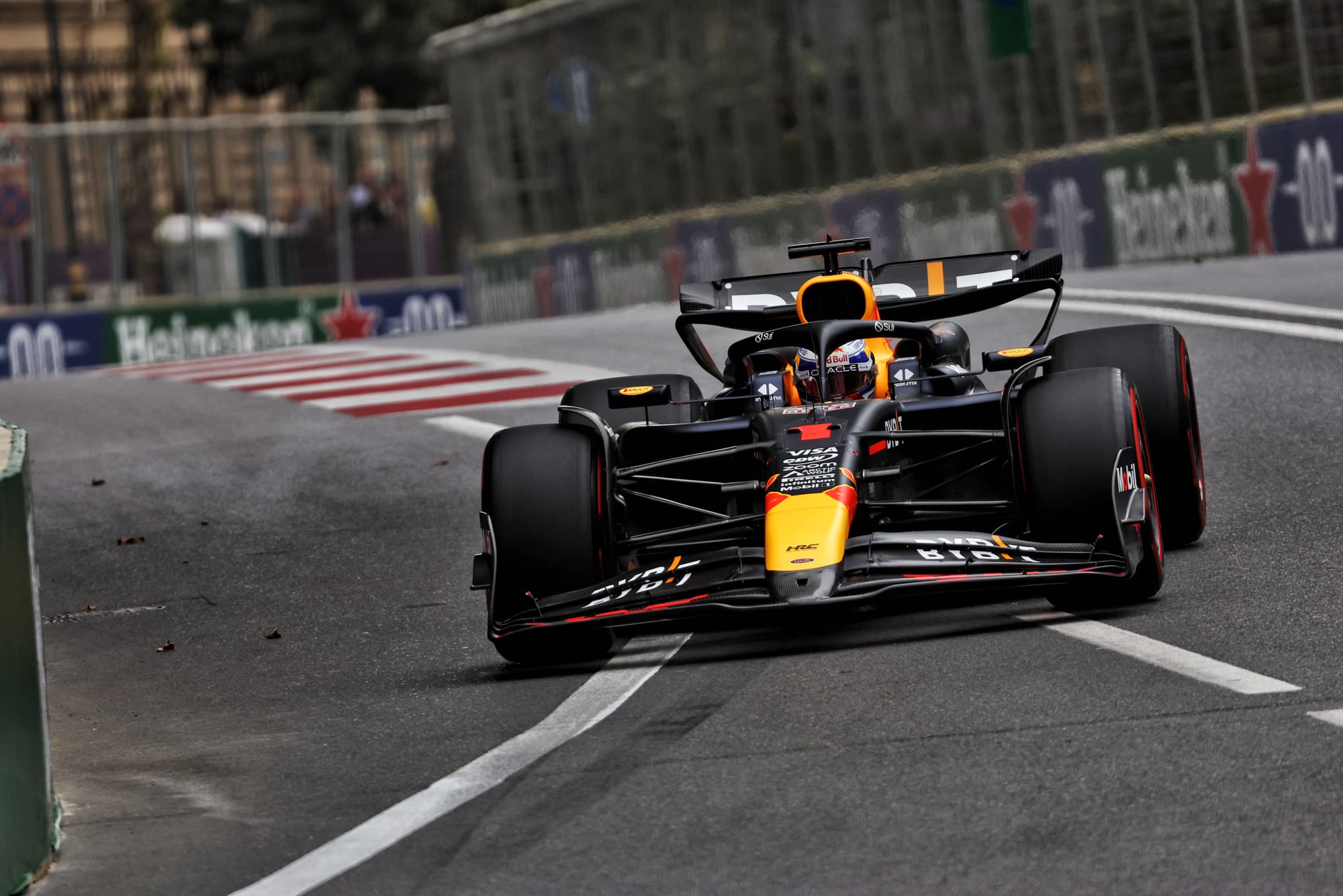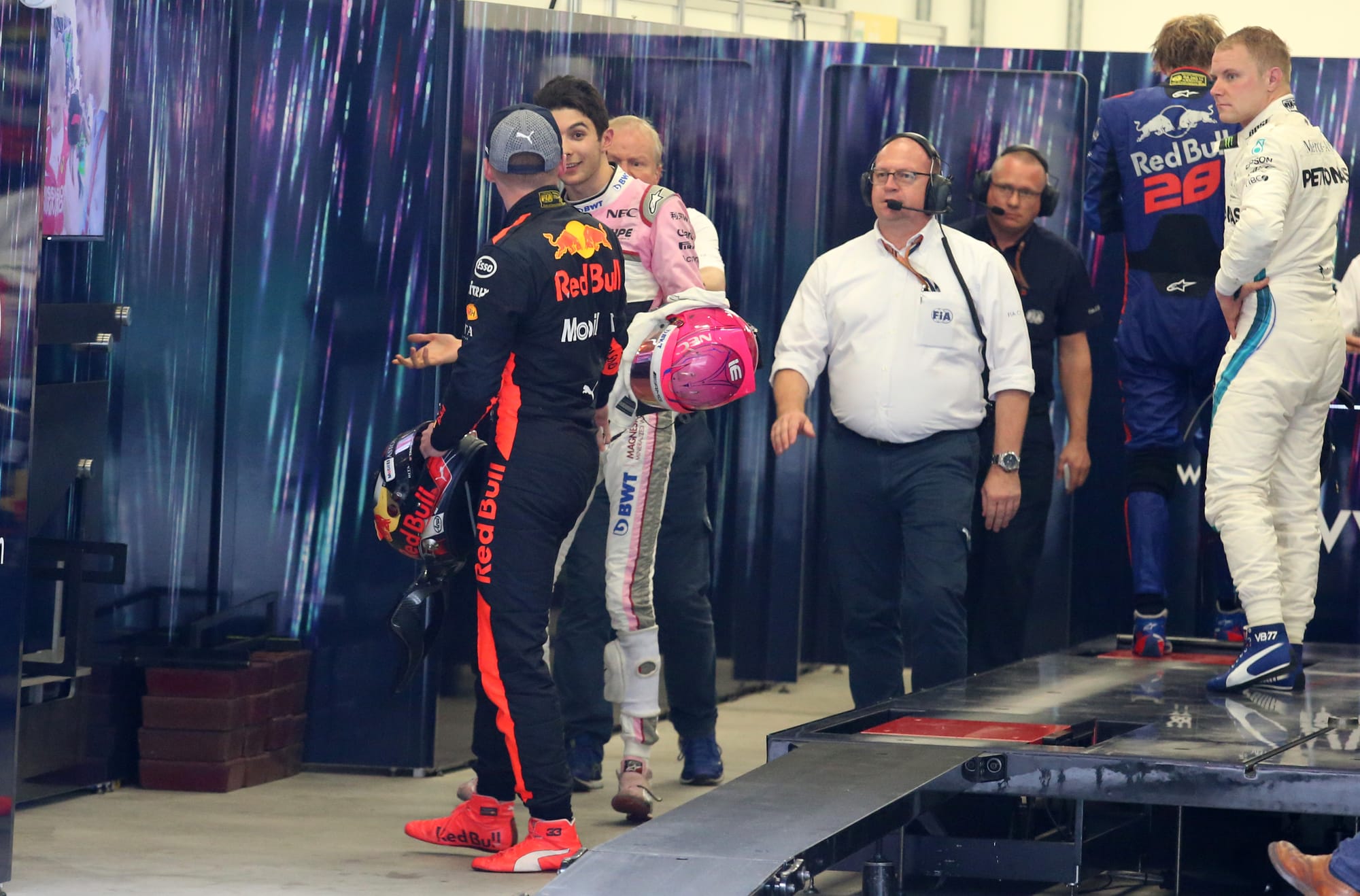Up Next

Formula 1 points leader Max Verstappen receiving what is essentially motorsport's version of community service for saying one swear word is a farcical overreaction.
Verstappen has been ordered to "accomplish some work of public interest" following his bad language in the pre-event press conference at the Singapore Grand Prix.
In detailing how miserable his Red Bull was to drive in Baku - where Verstappen was uniquely thumped by his team-mate Sergio Perez - Verstappen said “I knew the car was f***ed” as he began qualifying after set-up changes.

This drew the ire of the stewards who investigated and charged Verstappen with a "misconduct" breach of the FIA international sporting code.
"[Verstappen] used language to describe his car at the event in Azerbaijan which is generally considered “coarse, rude” or may “cause offence” and is not considered suitable for broadcast,” read their ruling.
The verdict is timely as this very same weekend FIA president Mohammed Ben Sulayem made headlines for his clampdown on F1 broadcasting swearing during on-track sessions.
Policing bad language on-track is futile and despite some speculation to the contrary, isn't what the focus of Ben Sulaymen's promised clampdown was. That was all about how much of it FOM broadcasts rather than the drivers saying it in the first place.
But such a harsh clampdown off-track is coming across far too strong based on Verstappen's punishment.
As the stewards cited, F1 team bosses Toto Wolff and Fred Vasseur were both handed warnings for their language in the wake of Carlos Sainz's Ferrari being destroyed by a loose drain cover at the Las Vegas Grand Prix last year.
The fact Wolff and Vasseur were even investigated was already somewhat dubious but at least there was no meaningful punishment for the duo simply expressing the kind of raw, unfiltered opinions F1 fans have long been wanting to hear.
Yes, leading F1 team bosses and drivers are somewhat "role models" for younger fans as the stewards say, but that includes being able to express a full range of emotions.
If bad language isn't allowed in press conferences that's fair enough. You may notice even here at The Race we'll asterisk out swearing, so we have no problem with trying to limit it where possible but we're not handing out punishments to achieve that.
Press conference host Tom Clarkson even reminded Verstappen of that after Verstappen swore, and the Red Bull driver didn't swear thereafter. Verstappen also apologised to the F1 stewards.
But that's as far as this isolated incident needed to go. The bad language wasn't directed at anybody, it wasn't inciting hatred towards an individual or team. That's the kind of irresponsible behaviour that would warrant such a punishment, not a simple poor choice of words in describing an inanimate F1 car.

All it's doing is creating unnecessary friction between the stewards and the drivers and making the drivers feel like they have to be more careful with what they say than they already are.
That's especially the case for those drivers for whom English isn't their first language who now have an added obstacle to overcome.
Wheeling them out at a future Formula E event - as Verstappen was made to do at Marrakesh in 2019 following his Interlagos 2018 altercation with Esteban Ocon - is just a waste of everyone's time.

It also sets a dangerous precedent that anybody who utters a single swear word in the press conference - including those held after an adrenaline-filled qualifying or race session - is going to be handed community service.
That's going to alienate far more young fans than the very occasional swear word is going to put off.
F1 has made so much progress in highlighting the personalities of its leading drivers. Verstappen is a proper star of the sport with a unique personality that sets him apart from every other world champion.
But this latest decision marks a completely unnecessary step back in showcasing the sport's biggest heroes when there are far bigger challenges to address.




